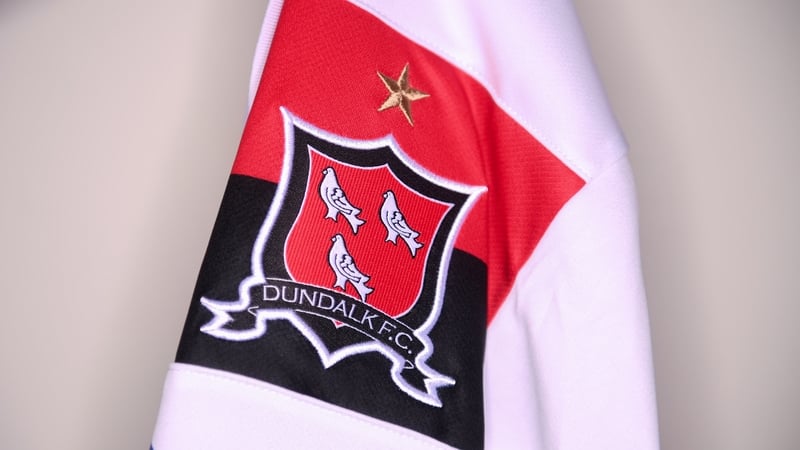A football club executive who ended up working shifts in a factory after being “very publicly” dismissed last year has won nearly €17,000 in compensation.
Martin Connolly told the Workplace Relations Commission (WRC) earlier this year that he had his last day at work at Dundalk Town FC on 26 February 2024, when its then-owner Brian Ainscough told him: “Do what you have to do and leave. I will honour what is in your contract.”
“I sorted out a few things in my office, contacted a few people, and I was gone in a few hours,” Mr Connolly had said.
The main issue in dispute at the hearing was the extent to which the club could be held liable for Mr Connolly’s losses should the WRC rule in his favour.
The tribunal has now awarded him €16,667 under the Unfair Dismissals Act 1977. The award is based on a period of four months that Mr Connolly was out of work after the club stopped paying him in May 2024. The tribunal heard Mr Connolly was earning €50,000 a year as chief operating officer at Oriel Park.
The club’s barrister, Cillian McGovern BL, told the tribunal at a hearing in January that he didn’t think Mr Connolly had made a “material contribution to his own dismissal”.
“He was given three months’ notice by the former owner. Thereafter he went home. He was paid for that. On 22 May [2024] the employment was effectively ended,” counsel said.
Under questioning, Mr Connolly said he did not return to the club after February 2024 and was “unemployed, just at home”. He said he contacted his solicitor when his salary payments stopped in May 2024.
Mr McGovern put it to him that there was a clause allowing for three months’ pay in lieu of notice. Mr Connolly said: “I just contacted my solicitor and asked him for guidance. I do remember a clause in my contract about an 18-month payment.”
He said this was on the basis of a “mutually-agreed early exit”.
Mr McGovern said it was accepted that Mr Connolly was not notified in writing of his dismissal, but his contract referred to payment in lieu of notice and this is what Mr Ainscough had done.
“I wasn’t aware of anything. It wasn’t explained to me why. The conversation was very brief, and shortly after that I contacted my solicitor to find out where I stood and what the situation was,” he said.
“Did you understand the club was in extreme financial difficulty,” Mr McGovern asked.
“I didn’t, because Mr Ainscough and I, we never had that discussion. He had taken over the club the previous November, and it seemed to me he wasn’t fully aware of the situation,” Mr Connolly said.
“What was the situation,” counsel asked.
“He didn’t do any due diligence. He took the club over, he spoke with the parties, he took it over very quickly,” Mr Connolly said.
Mr Connolly added when questioned that a company called Stat Sports had been the previous majority owner of Dundalk, with his brother a minority shareholder.
He said it was his “opinion” that Mr Ainscough had not done his “due diligence”.
“There was a lot of information that seemed to be new to him,” Mr Connolly said. He added later that a previous takeover process had taken 15 or 16 months due to the requirements of due diligence, but that Mr Ainscough had done a deal in two weeks.
Mr Connolly had applied for around six or seven jobs before taking a temporary position in a factory in Cabinteely in Dublin run by biopharmaceuticals company Amgen, in September 2024, His barrister Aaron Shearer BL said.
The factory job paid just under €43,000 a year and involved 12-hour shifts in a factory, the tribunal was told – and involved a commute of 90 minutes to two hours.
In a closing submission, Mr Shearer said the dismissal was “accepted to have been unfair” and that his client was in a position to claim for four months’ loss of salary from the COO job at €50,000 per annum, along with an ongoing loss after taking up the Amgen role.
He said that in setting the award, the WRC would have to take into account the “damage” to his client’s reputation and ability to find work and switch jobs caused by being “very publicly dismissed by a very public employer”.
In her decision, published today, adjudicator Kara Turner wrote that she was satisfied Mr Connolly’s termination “was an unfair dismissal”.
There were no substantial grounds established by the employer for the termination and “no conduct on the complainant’s part, or any other issue put before me, that warranted termination of the complainant’s employment in the manner it occurred”, she wrote.
“I consider compensation in the sum of €16,667 for financial loss attributable to the complainant’s unfair dismissal to be just and equitable having regard to all the circumstances,” Ms Turner wrote.
This was on the basis that Mr Connolly had failed to provide documentary evidence of reasonable efforts to mitigate financial loss from June to August 2024. He had provided documentary evidence of job applications between March and May 2024, the adjudicator noted.
Mr McGovern was instructed by David Lane of McGroddy Brennan Solicitors for the club. Mr Connolly’s barrister, Mr Shearer, was instructed by Ahern and McDonnell LLP in the matter.




